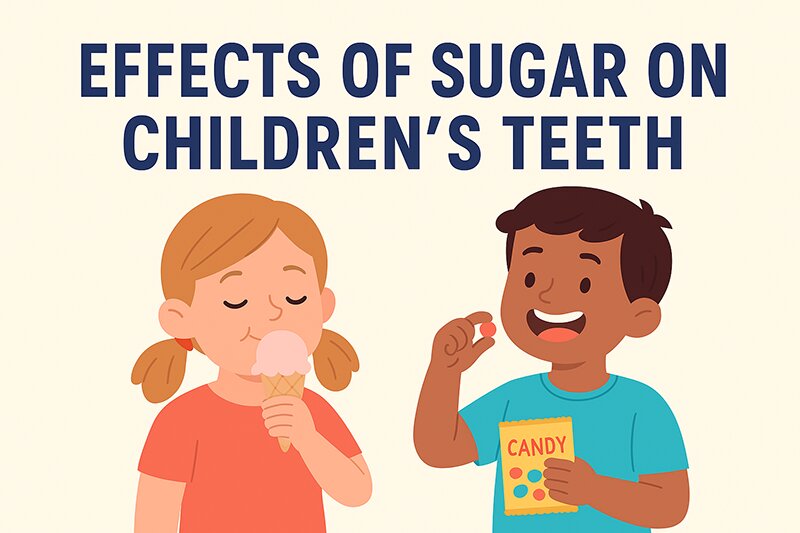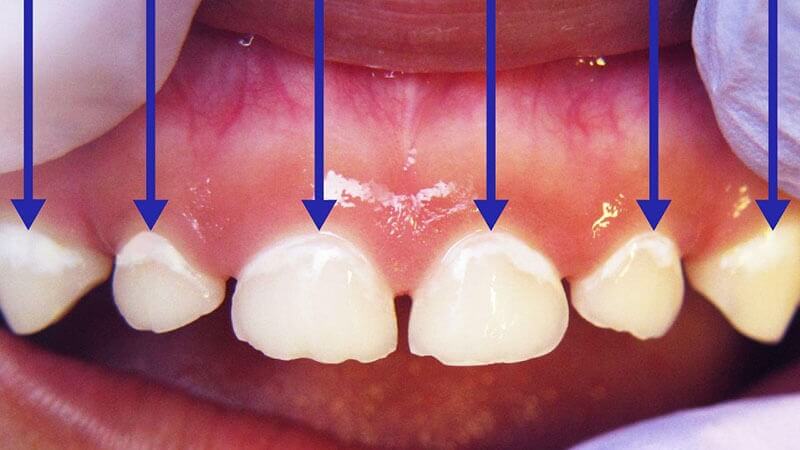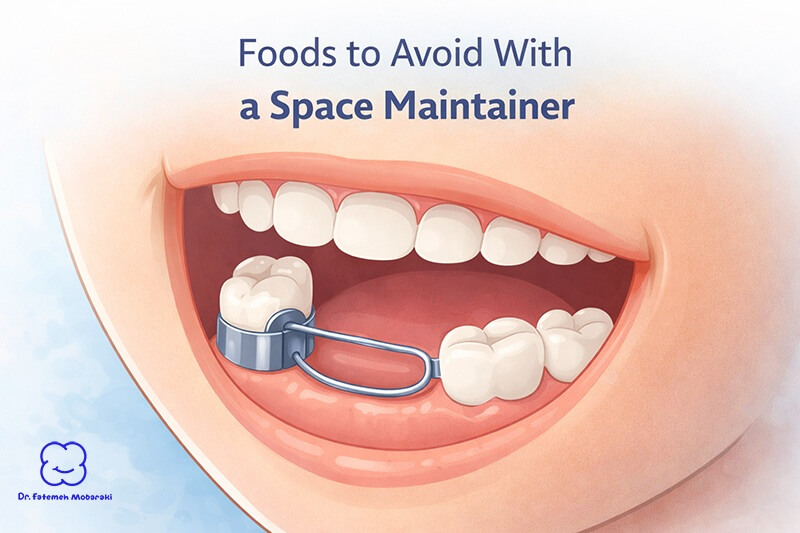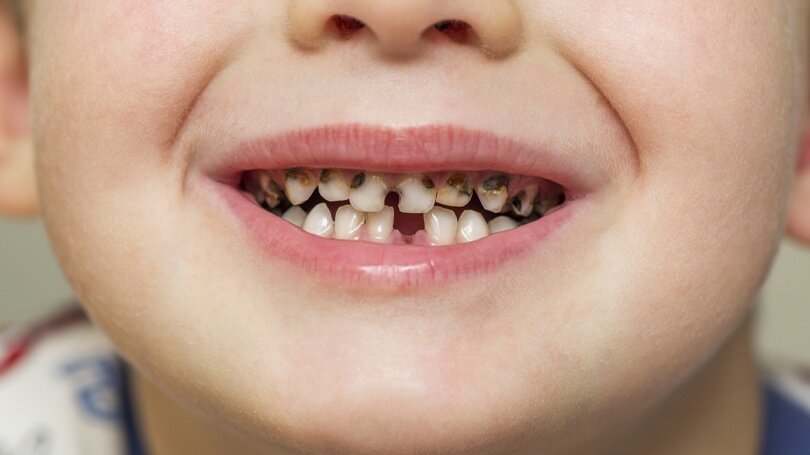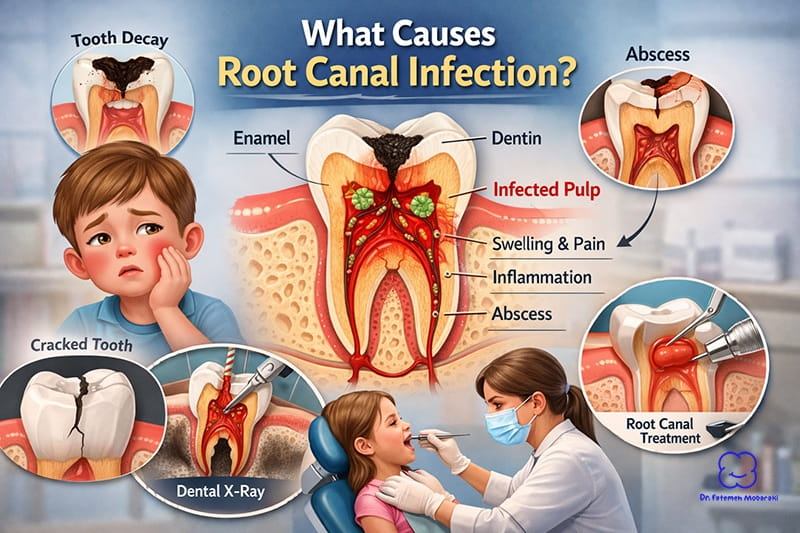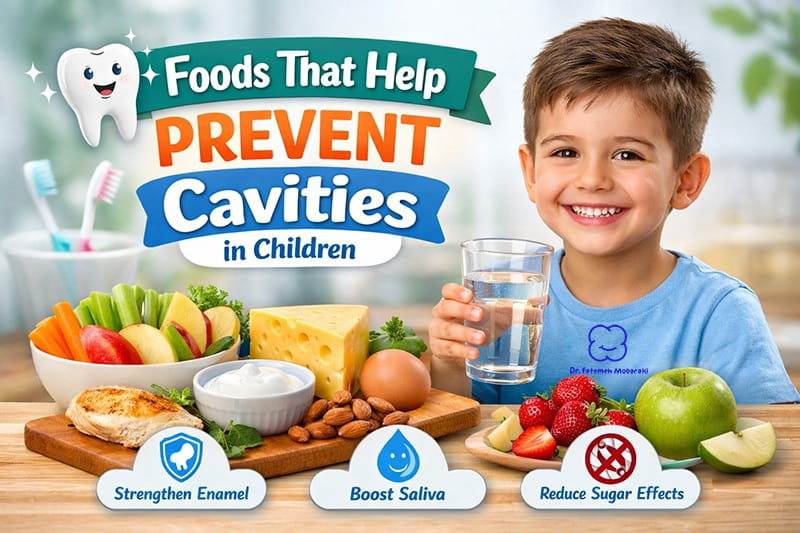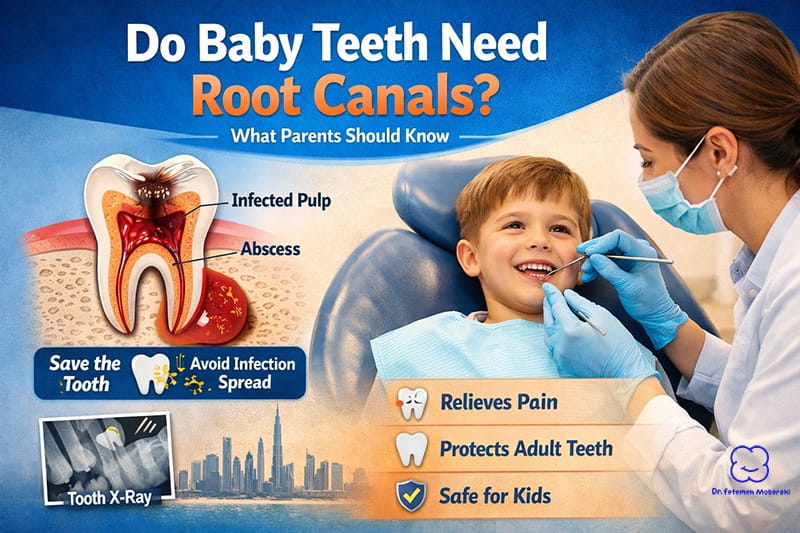Sugar might taste delightful, but it’s secretly sabotaging your child’s dental health. Understanding the effects of sugar on children’s teeth can significantly reduce the risk of long-term dental issues. As a concerned parent, it’s crucial to grasp how sugar operates silently, weakening your child’s teeth over time.
Why Do Children Love Sugar?
Children naturally gravitate toward sugary foods because sugar stimulates the brain’s pleasure centers, releasing dopamine and creating feelings of happiness and satisfaction. Sweet flavors are also biologically preferred, as they signal calorie-rich foods needed for energy. However, this biological preference means parents must take extra care to manage sugar intake responsibly.
Behind the Sweetness: How Sugar Attacks Teeth
Every child loves sweets—cookies, candies, chocolates, and sodas. But these sugary delights have a hidden agenda: tooth decay in children. These are just a few of the long-term effects of sugar on children’s teeth if left unchecked. Sugar itself isn’t the sole culprit, but rather its interaction with bacteria naturally present in the mouth. When sugar combines with bacteria, it creates acids that erode tooth enamel, leading to cavities and tooth decay.
The Effects of Sugar on Children’s Teeth: What Every Parent Should Know
Sugar significantly impacts oral health by fueling harmful bacteria in the mouth. These bacteria produce acids that weaken tooth enamel, leading to cavities, tooth decay, and gum diseases. Regular sugar exposure increases plaque formation, enamel erosion, and even infections, negatively affecting both immediate dental health and future oral hygiene.
“Parents often underestimate how even small amounts of sugar can lead to significant dental issues in children. It’s crucial to monitor and manage sugar intake to protect their developing teeth.”
Dr. Fatemeh Mobaraki, Pediatric Dentist
Hidden Sugars: Where Danger Lurks
It’s not just candy and sodas parents need to watch out for. Many seemingly healthy foods contain high levels of hidden sugar. Fruit juices, flavored yogurts, cereals, sauces like ketchup, and even dried fruits can significantly contribute to dental health issues. These hidden sources are equally harmful and contribute to the impact of sugar on kids’ dental health.
Timing Matters: Frequency of Sugar Intake
Surprisingly, the frequency of sugar intake matters as much as the quantity. Continuous snacking or sipping sugary beverages keeps your child’s teeth constantly exposed to harmful acids. Each sugar exposure restarts the acid attack, increasing the risk of tooth decay significantly. This means frequent small sugary snacks throughout the day are worse than one sugary treat at a meal.
The Battle Inside: Sugar Versus Saliva
Nature has given children a powerful defense—saliva. Saliva helps neutralize acids and repair teeth after acid attacks by replenishing essential minerals. However, frequent sugar consumption overwhelms this natural defense, leaving teeth vulnerable to continuous damage and potential decay.
Beyond Cavities: Other Dental Health Issues Caused by Sugar
Cavities are the most common issue linked to sugar, but other less noticeable yet serious effects exist:
- Enamel Erosion: Sugar-induced acids slowly erode enamel, causing increased sensitivity and discomfort.
- Gum Disease: Excessive sugar intake contributes to plaque buildup, causing gum irritation and potential periodontal diseases in kids.
- Future Orthodontic Issues: Poor dental health in early childhood may lead to severe orthodontic problems later, requiring treatments such as tooth fillings or even dental crowns.
Read More: How Diet Prevents Tooth Decay in Children
Myths vs. Facts About Sugar and Teeth
- Myth: Sugar itself directly damages teeth. One of the most underestimated effects of sugar on children’s teeth is the gradual weakening of enamel.
- Fact: Sugar feeds bacteria that produce harmful acids; it’s these acids that damage teeth.
- Myth: Natural sugars from fruits are harmless.
- Fact: Even natural sugars can cause tooth decay if consumed excessively without proper oral hygiene.
- Myth: Sugar-free products don’t cause tooth decay.
- Fact: Some sugar-free products are acidic and can still damage enamel over time.
Impact of Sugar on Overall Child Health
According to the NHS, high sugar consumption is a major contributor to childhood obesity and dental problems.
The detrimental impact of sugar extends beyond dental health. Excessive sugar intake can lead to obesity, increased risk of diabetes, reduced immunity, and behavioral issues due to sugar spikes and crashes. Managing sugar consumption thus contributes significantly to your child’s overall health and wellbeing.
Healthier Alternatives to Sugary Snacks
Consider these appealing yet healthy snack options for your children:
- Fresh fruits like apples, berries, and bananas
- Vegetables with hummus or yogurt dip
- Cheese slices or sticks
- Nuts or seeds
- Whole grain crackers or popcorn (unsweetened)
How to Reduce the Effects of Sugar on Children’s Teeth
Taking proactive measures can significantly mitigate the harmful effects of sugar on children’s teeth. Here are some easy-to-follow recommendations:
- Limit Sugary Snacks and Drinks
- Try offering healthier snacks like fresh fruits, vegetables, cheese, or nuts instead of candies and processed sugary snacks. Water and milk are always preferable to sodas or juices.
- Encourage Rinsing with Water
- Make it a habit for your child to rinse their mouth with water after consuming sugary foods or drinks. This simple habit can dramatically reduce harmful acid exposure.
- Schedule Regular Dental Checkups
- Regular dental checkups with a reliable pediatric dentist in Mirdif can detect early signs of tooth decay and provide preventive treatments like fluoride treatment, ensuring stronger and healthier teeth.
- Maintain Good Oral Hygiene
- Brushing twice daily with fluoride toothpaste and regular flossing help protect against cavities and tooth decay caused by sugar. Supervise younger children to ensure proper brushing techniques. This habit significantly helps in preventing the effects of sugar on children’s teeth over time.
Read More: How to Stop Kids Eating Too Much Sugar
Building Lifelong Healthy Habits
Creating positive dental health habits early in life protects your child’s smile and overall health. By understanding and mitigating the hidden threats of sugar, you’re giving your child a foundation for a lifetime of good dental hygiene.
Dr. Fatemeh Mobaraki’s pediatric dental clinic offers comprehensive dental checkups, fluoride treatments, and tailored dental care to ensure your child’s teeth remain healthy and strong, despite the sweet temptations of sugar.
Understanding the true impact of sugar on kids’ dental health empowers parents to safeguard their children’s smiles effectively.
Your Sugar Questions Answered: Expert Advice
1. How much sugar is too much for kids?
The American Heart Association recommends limiting children’s sugar intake to less than 6 teaspoons (25 grams) per day.
2. Are all sugars equally harmful?
All sugars can cause tooth decay, but added sugars found in candies, pastries, and sodas are significantly more harmful than naturally occurring sugars in fruits.
3. Can my child still enjoy sweets?
Absolutely, but moderation is key. It’s beneficial to reserve sugary treats for special occasions rather than everyday snacks.

